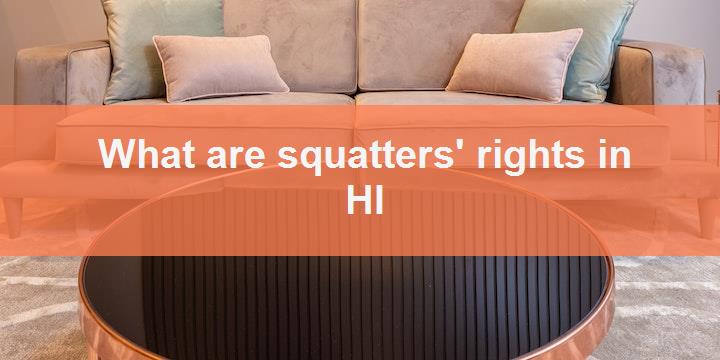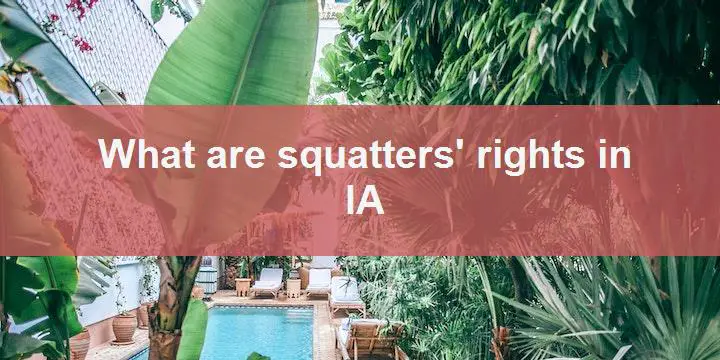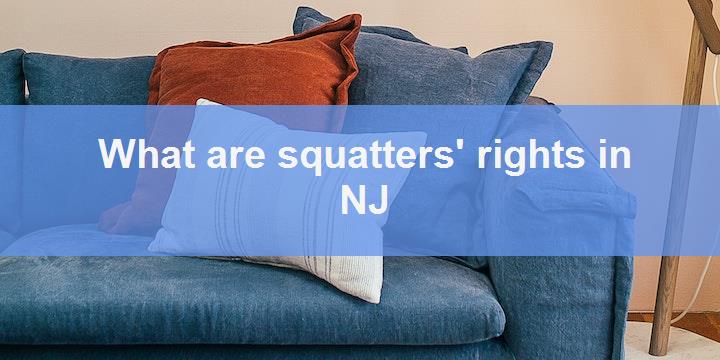What are squatters’ rights in Hawaii?
Firstly, it’s important to understand what squatters’ rights actually are. Essentially, it refers to the right of someone who has been living on a piece of land for a certain amount of time without the owner’s permission to claim legal ownership. In Hawaii, this timeframe is 20 years. As such, the most important thing for someone seeking squatters’ rights in Hawaii is time – they need to have been living on the land for at least 20 years. Furthermore, it’s important to note that the owner of the land must also have been aware of the squatter’s presence for the entire time. Finally, it’s crucial for squatters to seek legal advice and assistance to ensure they are following the correct procedures and timelines to claim their rights.
What is the squatting/squatter?
Squatting is the phenomenon of occupying an abandoned or unoccupied property without the owner’s consent. This practice is widely debated, and while some may view it as an act of resistance against the rising cost of housing, others consider it a form of vandalism. Despite the criticisms, squatters have taken over many properties, including houses, commercial spaces, and even entire towns. For example, in 2020, a group of squatters occupied an old courthouse in London, claiming to be a collective of artists and activists. While the legality of squatting varies from country to country, one thing is certain – this is a contentious issue that requires serious attention.
What is Adverse posession in Hawaii?
Adverse possession is a legal term used to describe a situation in which a person who does not have legal ownership of a property gains ownership through continuous possession over a certain period of time. In Hawaii, adverse possession laws have a few unique requirements. First, the possession must be open and notorious, meaning that it is obvious to anyone who visits the property. Secondly, the possession must be continuous for at least 20 years before it becomes legally recognized. Lastly, the person claiming adverse possession must have a “hostile” intent, meaning they must occupy the property without the owner’s permission. Adverse possession laws can be complex, so it’s important to understand them thoroughly if you are dealing with a property ownership dispute.
Is it legal to squat in Hawaii?
When you considering squatting in Hawaii, there are several things to take into account. First, it’s essential to understand the legality of such an arrangement. Second, you should research local laws and regulations to make sure you’re not breaking any rules. However, living in Hawaii without the correct permits or licenses could lead to serious legal issues. So, if you’re thinking of squatting here in Hawaii, it’s important to weigh the pros and cons and make an informed decision.
Can police remove squatters in Hawaii?
First of all, it’s important to understand the laws surrounding squatting in Hawaii. Generally, squatting is considered a violation of someone else’s property rights and is therefore illegal. However, the process for removing squatters can be complicated and may vary depending on the specific circumstances. In some cases, the police may be able to remove squatters, but it is not always that simple. The property owner may need to go through a legal process, such as filing a lawsuit, to get the squatters evicted. Overall, it is important to note that squatting is illegal and can have serious consequences, so it’s best to avoid it altogether.
How to evict squatter in Hawaii?
If you find yourself in the unfortunate situation of having a squatter on your Hawaiian property, there are steps you can take to evict them. First, it is important to understand the rights of squatters in Hawaii. However, don’t despair as there are several legal options available to remove the squatter. The first step is to send a letter demanding that they vacate the property or face legal consequences. If this fails, you can file a lawsuit seeking an eviction order. It is important to gather evidence to support your case, including documentation of your ownership of the property and evidence of the squatter’s presence. Finally, if all else fails, you may need to enlist the services of law enforcement to physically remove the squatter. No matter which route you choose, it is important to work with a knowledgeable attorney to ensure you are following the correct legal procedures in evicting the squatter.
FAQ
Q: What is the article ‘What are squatters’ rights in Hawaii’ all about?
A: The article is about understanding the legal rights of squatters in Hawaii, which is common in the state due to high demand for housing and expensive real estate prices.
Q: Who are squatters?
A: Squatters are individuals who occupy and live on a property that they do not own, without the owner’s consent.
Q: What are the rights of squatters in Hawaii?
A: Squatters in Hawaii have very limited legal rights. If the owner of the property finds out about the presence of squatters, they have the right to evict them without a court order.
Q: Can squatters acquire ownership of a property in Hawaii?
A: No, squatters cannot acquire ownership of a property in Hawaii. In some states, squatters can claim ownership of a property after a certain amount of time, but Hawaii does not have a law like this.
Q: What should property owners do if they discover squatters on their property?
A: Property owners should act quickly and hire a lawyer to help them evict the squatters. It is important to document the squatters’ presence and any damage they have caused to the property.
Q: Can squatters be charged with trespassing?
A: Yes, squatters can be charged with trespassing if they occupy property without the owner’s consent.
Q: What are the consequences for squatters who are evicted from a property in Hawaii?
A: Squatters who are evicted from a property in Hawaii can face criminal charges and may be required to pay damages for any harm they caused to the property.
Q: Is it legal to squat in abandoned buildings or properties in Hawaii?
A: No, it is not legal to squat in abandoned buildings or properties in Hawaii. Squatting is never legal and can result in criminal charges.
Q: Are there any exceptions to squatters’ rights in Hawaii?
A: No, there are no exceptions to squatters’ rights in Hawaii. Squatting is illegal and property owners have the right to evict squatters without a court order.
Also Reading
Top pros and cons of living in Dallas
Lenexa average rent
Yakima average rent




